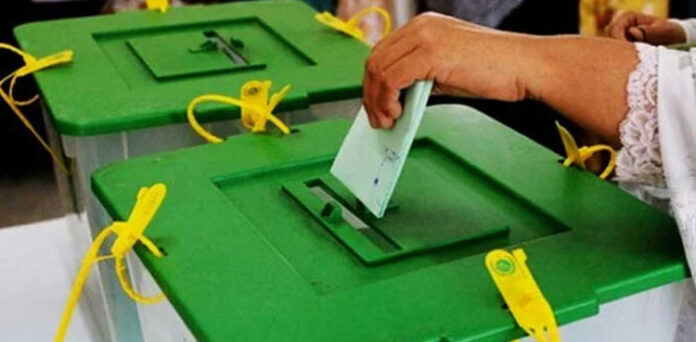- Web Desk
- Feb 19, 2026
High voter turnout anticipated for February 8 elections: survey
-

- Web Desk
- Jan 26, 2024

(WEB DESK) In the lead-up to the February 8 general elections, a recent survey conducted by Pattan-Coalition 38 in 41 districts across the country from January 4 to 22 has revealed that despite the controversy surrounding the polls, an overwhelming 87 per cent of working individuals express a strong desire to cast their votes on the scheduled date.
A report by Dawn news on Friday detailed the comprehensive survey, which involved face-to-face interviews with 1,149 individuals and 820 office-bearers of 345 unions and associations representing economically disadvantaged classes, sheds light on various aspects of the electoral landscape.
Elections 2024: 42% former MNAs shift party allegiances
Approximately 27 per cent of the interviewees were women, a figure closely aligning with Pakistan’s female labour participation rate. A majority of respondents expressed concerns about the Election Commission of Pakistan (ECP) and the caretaker governments, attributing the controversy to the deliberate denial of a level playing field for certain parties and candidates.
The survey asked to identify institutions responsible for the lack of level playing field. To this, 55 per cent placed blame on the ECP and caretaker government, 16 per cent cited the establishment, and 20 per cent implicated all, including the judiciary. The perception of the unavailability of level playing field appears consistent across political lines, with 67 per cent of PPP-affiliated respondents and 58 per cent of those aligned with PML-N believing that PTI lacks a fair playing field.
The survey delves into urban-rural dynamics, revealing that 58 per cent of respondents were from urban areas and 30 per cent from rural regions. This marks a groundbreaking effort in survey research, focusing on marginalized and professional individuals and their associations to explore voting dynamics, behaviour, and electoral issues in Pakistan.
67% of PPP-affiliated respondents and 58% of those aligned with PML-N believe that PTI is not getting a level playing field.
Respondents were asked to identify the top three issues facing them and the country. The survey results highlight price hikes, poverty, organized exploitation, injustice, corruption, and selective implementation of laws and policies by elites as the most pressing concerns. Over 90 per cent of marginalized individuals and their association leaders attribute these problems to elites and so-called electables.
Regarding blame for the current multifaceted crises, 41 per cent of respondents pointed to PDM and the caretaker government, while 12 per cent blamed the PTI government, 6 per cent the ECP, and 7 per cent the judiciary, with about 31 per cent considering all of them responsible.
In terms of party popularity, 50 per cent of respondents from Sindh indicated support for the Pakistan People’s Party, dropping to 17 per cent at the national level. PML-N garnered 23 per cent support in Punjab, but only 16 per cent nationwide. PTI emerged as the most popular party at the national level with 39 per cent support, rising to 44.5 per cent in KP and 47 per cent in Punjab.
Elections 2024: ECP issues code of conduct for armed forces
The survey also highlighted a noteworthy phenomenon – a popularity gap between certain political leaders and their parties, such as Imran Khan being 10 per cent more popular than his party nationally and Bilawal Bhutto Zardari being 12 per cent less popular than his own party in Sindh.
To assess the accuracy of the voter roll, respondents were asked about deceased family members. About 28 per cent reported losing a family member in recent years, and 37 per cent of them had verified the details through 8300, with 27 per cent finding their deceased relatives listed on the final electoral rolls.
The data underscored a lack of organised interaction between political parties and citizens’ associations, particularly those representing marginalised people. Despite facing challenges like rising living costs, injustice, poverty, and a lack of a level playing field, 82 per cent of respondents expressed hope for Pakistan’s future. The survey suggests the need to harness this hope for tangible outcomes, emphasizing the importance of building alliances among marginalized people, their associations, and reform-minded intelligentsia on a national scale.




